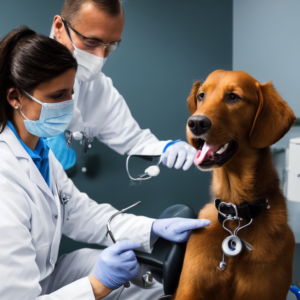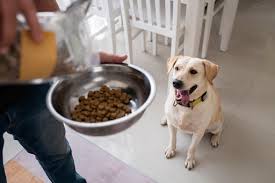Inviting a modern puppy in your home is an energizing encounter full of adore, joy and obligation. One of the most vital perspectives of your cherished partner’s care is to guarantee that they get the right nourishment at all stages of improvement. Appropriate nourishing not as it were underpins solid advancement, but moreover anticipates stomach related issues and long -term wellbeing issues. In this direct, we will find the vital puppy feeding guideline that will offer assistance when you donate your puppy the best begin in life.
Why Puppy Feeding Guidelines Matter
Puppies develop at a fast pace, particularly amid the to begin with year. The legs, muscles, and their resistant framework require the right adjustment of supplements to create legitimately. Without the right puppy nourishment bolstering rules, numerous unused Puppy food Feeding Guidelines are inadvertent or underfielding, causing wellbeing challenges such as weight, ailing health or injured advancement. By taking after organized nourishing honey, you can appreciate the puppy in both wellbeing and vitality.
Determining the Right Puppy Diet
The basis for all Puppy Feeding Guidelines is to choose the right diet. Puppies require a combination of high quality protein, fat, vitamins and minerals. Look for a puppy -specific food labeled as “complete and balanced”, which ensures that it contains all important nutrients.
It is important to remember that adult dog food is not suitable for puppies, as there is a lack of additional protein and nutrients required for rapid development. Depending on the advice of your veterinarian, you can choose between dry kibble, wet food or a mixture of both. Homemade diets are also an alternative, but they must be carefully balanced to avoid the deficiencies of nutrients.
Feeding Frequency by Age
The need to feed the puppy varies depending on the age and size. An important aspect of puppy food feeding guidelines is to adjust the frequency of food as the puppy increases.
6-12 weeks old: Puppies at this arrangement require visit nourishment, ordinarily four times a day. Their little stomach cannot adapt with expansive parcels, so little, nutritious nourishments are the best
3-6 months old: Reduce three foods daily. This phase quickly supports bone development and beginners.
6-12 months of age: Most puppies can infection for two meals a day, depending on breed and energy level.
12 months and above: Until this age, puppies can usually follow an adult dog feeding plan.
Always consult your veterinarian, as large breeds often slow down and an extended puppy diet may be needed.
Portion Control and Avoiding Overfeeding
One of the most unseen parts of the puppy feeding guidelines is control. While it is attractive to fill the puppy bowl. When they look hungry, it can cause overweight, common problems and later heart disease in life.
Check the feeding map given on the puppy food packaging. Adjust the size of the part according to the weight, age and activity level of your puppy. Monitoring your body conditions regularly – your puppy must have a view, and you should be able to feel the ribs without pressing it very hard.
Hydration is Just as Important
While the food is very emphasized, the consumption of water is just as important in the guidelines for feeding puppy food. Puppies require consistent get to to clean, new water to bolster absorption, digestion system and temperature control. Parchedness can rapidly influence their wellbeing, so continuously keep a water bowl in get to.
Treats and Training Rewards
Behavior is a great way to reward good behavior and help with exercise, but they should never replace food. According to the relevant puppy feeding guidelines, behavior should not exceed 10% of the daily calorie intake of the puppy. Choose low -calorie, healthy behavior that supports dental health and avoiding scrap feeding, which can interfere with their digestive system.
Transitioning Between Foods
Many times you may need to change puppy foods – either because of health problems, stages of development or availability. Puppies under this infection are important to avoid stomach upset according to food feeding. Always introduce the new meal gradually for more than 7-10 days by increasing the relationship between new food and gradually new food.
Monitoring Growth and Health
A central portion of the puppy nourish rules is the improvement of the puppy and ceaseless observing of the vitality level. Standard veterinary visits, weight control and watching their coats, teeth and vitality will offer assistance you distinguish if their count calories require alteration. Solid puppies are dynamic, have a sparkly coat and keep up steady development designs.
Common Feeding Mistakes to Avoid
Even with the best intentions, many new pet parents make mistakes. To look like to include some ordinary people:
- Overfyr due to the size of misunderstanding.
- Adult dog meals for puppies.
- Much behavior and human food offerings.
- To ignore the needs of hydration.
- Do not accommodate feeding of zodiac signs as the puppy increases.
Avoiding these errors will be placed on the path with proper nutrition.
Final Thoughts
Nourishing the puppy accurately is one of the greatest blessings you can donate to them. Your puppy develops into a sound, lively and cheerful grown-up pooch agreeing to the rules for organized Puppy Feeding Guidelines. Keep in mind that each puppy is interesting, so contact your veterinarian for personalized slim down and sustenance counsel.
In Animalspethealth, we believe that the parents of the pets reported raising healthy pets. By sticking to reliable puppy food guidelines, you can support your beloved friend’s development and determine the platform for life.

















